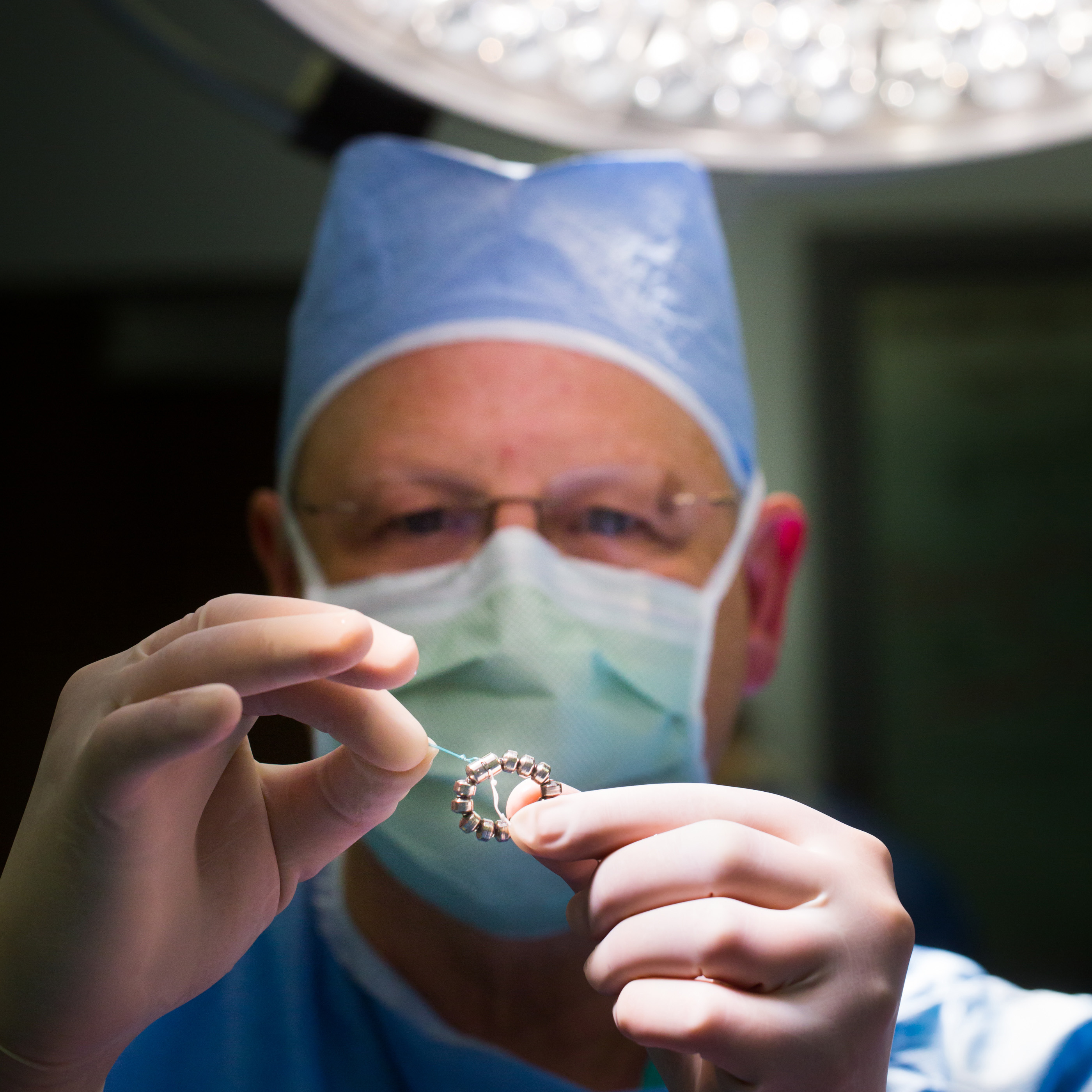Richards, Rieske publish chapter in ‘Operative Techniques in Surgery’ textbook
William Richards, M.D., professor and chair of surgery at the Whiddon College of Medicine, and Richard Rieske, M.D., a fifth-year surgery resident at USA Health, wrote Chapter 12: Magnetic Sphincter Augmentation for GERD.

Two USA Health surgeons are authors of a chapter in the recently published textbook “Operative Techniques in Surgery, Second Edition.”
William Richards, M.D., professor and chair of surgery at the Frederick P. Whiddon College of Medicine, and Richard Rieske, M.D., a fifth-year surgery resident at USA Health, wrote Chapter 12: Magnetic Sphincter Augmentation for GERD.
The chapter describes a minimally invasive surgical procedure used to treat gastroesophageal reflux disease (GERD), one of the most common gastrointestinal problems in the U.S., affecting 20% of the adult population.
The procedure involves the laparoscopic placement of a stretchable ring of small magnetic beads — the LINX Reflux Management System — around the lower part of the esophagus (lower esophageal sphincter). The magnets are set to an exact strength to help keep the lower part of the esophagus closed, preventing reflux.
Richards said that the procedure offers an alternative to Nissen fundoplication, a commonly performed surgery that tightens the junction between the esophagus and the stomach to prevent reflux.
“This therapy is emerging as an important alternative to the traditional Nissen fundoplication due to the fact that in contrast to the LINX™ procedure, Nissen rearranges the anatomy of the gastroesophageal junction to create an enhanced valve mechanism,” Richards said. “It impairs the patient’s ability to belch and vomit, resulting in a multitude of other symptoms.”
Research has shown that five years after LINX™ placement, 99% of patients reported no regurgitation, 88% of patients reported no bothersome heartburn, and 85% of patients no longer needed anti-reflux medications.
Rieske said the chapter will help other surgeons and trainees across the country learn about this minimally invasive technique from the perspective of Richards, an expert on the topic. “This continues a legacy of academic contribution to the advancement of surgical care from our department at the Whiddon College of Medicine,” Rieske said. “I am excited to be on the cutting edge of medicine and be a part of this research.”


